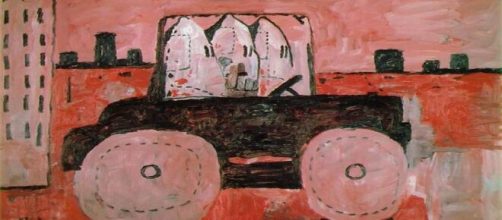No matter how you look at it, the decision to shelve Philip Guston's retrospective, which was supposed to open this year, amounts to censorship. If this is the way forward for exhibit halls in our wrangling world, all that we'll end up with is a banana duct-taped to museum walls. You can already see this on exhibit at the Guggenheim Museum.
When worrying makes a situation worse
Four museums chickened out of showing Guston's 150-item body of work because the mix is images of the Ku Klux Klan. Art News reported that these art institutions fretted that exhibit goer would take paintings of the white supremacist hate group the wrong way.
The worrywarts are Tate Modern in London, the National Gallery of Art in D.C., the Museum of Fine Arts in Boston, and the Museum of Fine Arts in Houston.
The best time to exhibit the Guston show is now
Plans to try again in four years seems arbitrary. Why four years? The way things are going right now with racial unrest and police brutality, not to mention Trump's refusal to condemn white supremacist violence, it's hard to imagine a better time. In response to the retro's cancellation, Art News notes that several artists, curators, and critics believe that the decision to delay the exhibit is a mistake. Michael Auping, curator of the Guston collection when it showed at the Modern Art Museum in Fort Worth, Texas in 2003, put it this way: "If ever there was a poignant time to have these Guston images shown, it's now."
Do you have to be black to talk about racism?
Art critic Aruna D'Souza disagrees.
The author of "Whitewalling: Art, Race, and Protest in 3 Acts," she thinks that having four white curators mount a show about racism is a bad idea. Art News quotes her saying that museums telling Black people to look at KKK figures because it's good for them is "terribly paternalistic and condescending." Instead of telling them what they should look at, she said, museums should ask them what they want to look at.
Father knows best, says daughter Musa Mayer
Guston's daughter doesn't see it the way D'Souza does. In a statement, cited by Celeband, Musa Mayer, author of Night Studio, a memoir about her father, said that he "dared to unveil white culpability, our shared role in allowing the racist terror that he had witnessed since boyhood." His family fled flee from anti-Semitism in Ukraine, she said. "This should be a time of reckoning, of dialogue. These paintings meet the moment we are in today. The danger is not in looking at Philip Guston's work, but in looking away."


